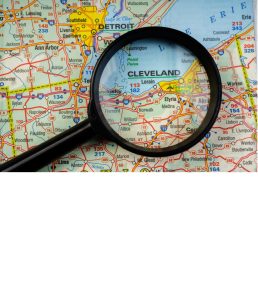🏠 Point of Sale Inspections in Northeast Ohio
What Sellers (and Buyers!) MUST Know Before Listing a Home in the Cleveland Area
If you are selling a home in Greater Cleveland or across Northeast Ohio, you may be surprised to learn that many cities require a city-mandated “Point of Sale Inspection” before you are legally allowed to transfer ownership.
Yes — in some cities, you cannot even list your home until the inspection is completed.
I’m Mike Ferrante, Realtor with Century 21 HomeStar and the 21 Mike Team, serving Greater Cleveland, Northeast Ohio, and Central Ohio.
➡️ Have a real estate need? Visit 21Mike.com and click the button at the top to schedule an appointment
➡️ Agents curious about the team? Email Mike@21Mike.com
❓ What Is a Point of Sale Inspection?
A Point of Sale (POS) inspection is a city-required inspection completed before a property can transfer ownership. Depending on the city, the inspection may include:
-
Exterior only
-
Interior and exterior
-
Sewer dye or camera tests
-
Code and safety compliance checks
Cities use POS inspections to maintain property standards and prevent homes from deteriorating. Their reasoning is usually this:
“POS inspections help preserve property values and housing quality for the entire city.”
📍 Where Does This Apply?
Many cities in Greater Cleveland require POS inspections — especially cities with “Heights” in the name. Examples include:
-
Shaker Heights
-
Cleveland Heights
-
Maple Heights
-
Garfield Heights
-
Euclid
-
Lakewood
-
South Euclid
-
University Heights
(Some cities have removed POS requirements after legal challenges — like Bedford and Oakwood Village — but most still enforce POS inspections.)
👉 If you’d like the full list of POS cities, email: info@21mike.com
🛠 What Happens During the Inspection?
A city inspector visits the property and issues a written report that may include:
-
Electrical or panel box issues
-
Cracked or heaving concrete / sidewalks / driveways
-
Peeling paint (common in pre-1978 homes because of lead-safe requirements)
-
Damaged roofing or gutters
-
Missing GFCI outlets
-
Handrail or safety issues
⚠️ Important: POS inspections are NOT substitutes for private home inspections.
They only focus on code violations, not condition, lifespan, or maintenance issues.
💰 Who Pays for Repairs?
 This is where negotiations come into play.
This is where negotiations come into play.
There are three typical paths:
| Option | Who Handles Repairs? |
|---|---|
| ✅ Seller fixes violations | Seller hires contractors and completes repairs before closing |
| 🔄 Buyer assumes violations | Buyer agrees to take responsibility after closing |
| 💵 Escrow holdback | Buyer or seller deposits funds with the title company until repairs are completed |
Some cities allow buyers to assume repairs — others require repairs to be completed BEFORE closing.
⏰ Timing is EVERYTHING
Biggest mistake sellers make: waiting to order the POS inspection.
Why that matters:
-
The city may take days or weeks to schedule the inspection.
-
If there are repairs, you need time to get quotes and complete work.
-
If re-inspection is required, that adds more time.
We see deals get delayed — or fall apart — simply because the POS was started too late.
Pro Tip:
Order POS before hitting the market.
A clean report is marketing gold: “POS violations cleared — ready to transfer!”
💡 Why You Should NOT Delay
Some sellers worry:
“What if I decide not to sell after getting the inspection?”
Once the city issues violations, they may require repairs even if you don’t sell.
They can send housing court notices and levy fines until the violations are resolved.
You can’t hide from it.
🏦 What About Buyers with Financing?
If a buyer has FHA, VA, or low-down financing, repairs often must be completed before closing.
Example: A cracked driveway or safety issues?
The lender may not allow the buyer to close until repairs are done.
Cash offers are easier, but even then, POS laws still apply.
✨ Final Takeaways
If you’re selling a home in Greater Cleveland or Northeast Ohio:
-
Know whether your city requires a POS inspection
-
Order it early — ideally before listing
-
Understand who completes repairs and how escrow works
-
Use POS readiness as a marketing advantage
This is one of those topics real estate school never teaches — and one of the biggest reasons to hire an experienced agent who knows the local laws.
🔗 Need the list of cities with Point of Sale inspections?
Email: info@21mike.com
For more great Real Estate content:
You can listen to our Podcast FREE BEER AND REAL ESTATE, or on YouTube for Mike’s weekly classes!!!
https://freebeerandrealestate.buzzsprout.com/
SCHEDULE AN APPOINTMENT WITH MIKE: 21Mike.com
EMAIL: MIKE@21MIKE.COM
CHECK OUT OUR TRAINING VIDEOS ON YOUTUBE: https://www.youtube.com/user/21mikec21
FACEBOOK: facebook.com/21MikeTeam
TRAINING ON ZOOM, TUESDAYS AT 11:30 EST: https://bit.ly/3r9Lw2c

 Facebook
Facebook
 X
X
 Pinterest
Pinterest
 Copy Link
Copy Link





